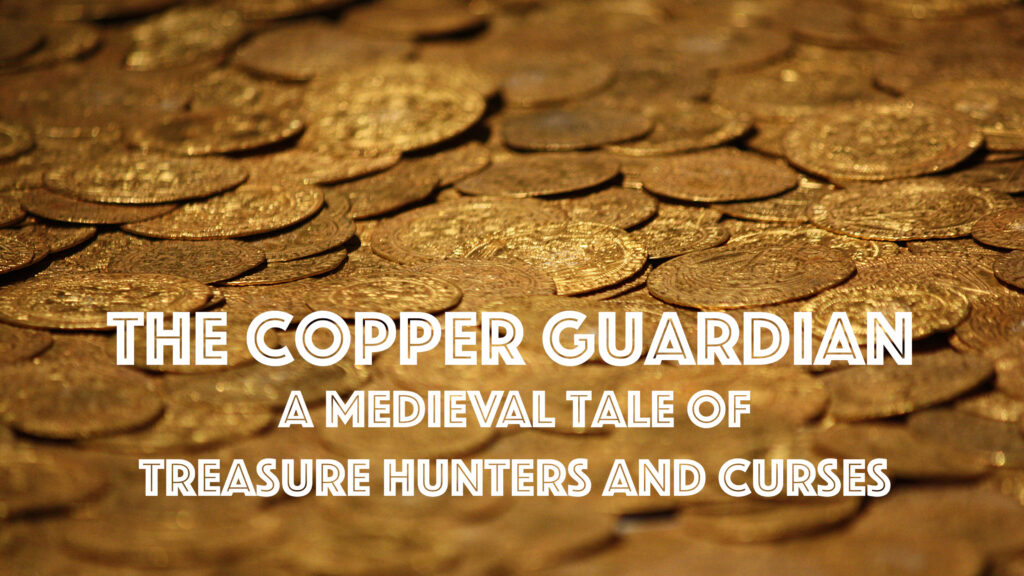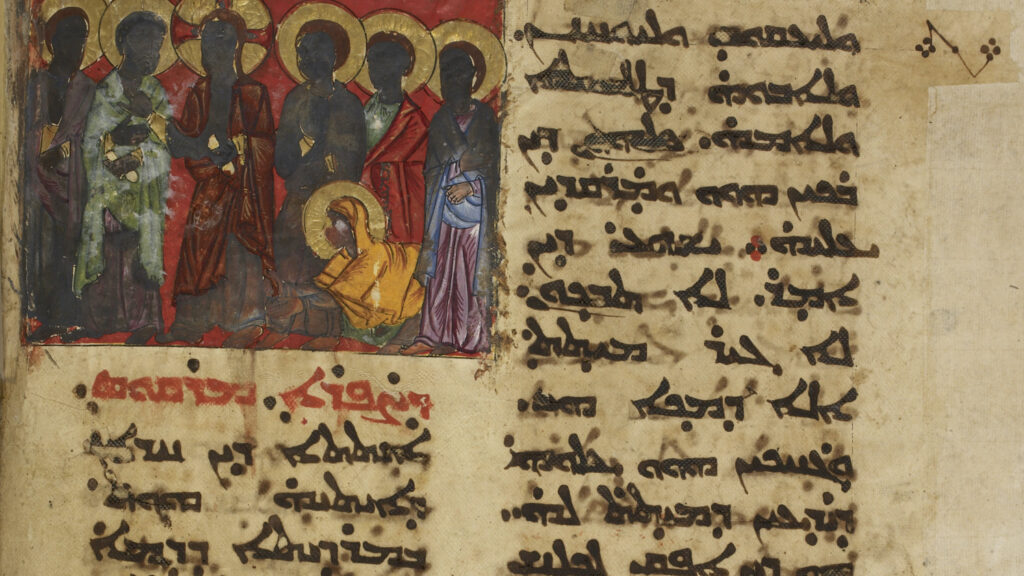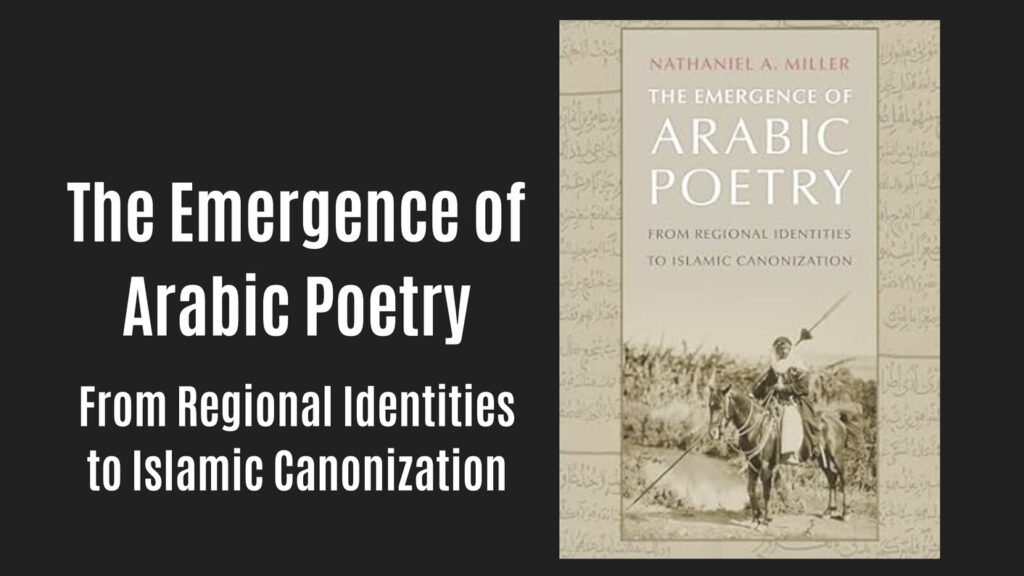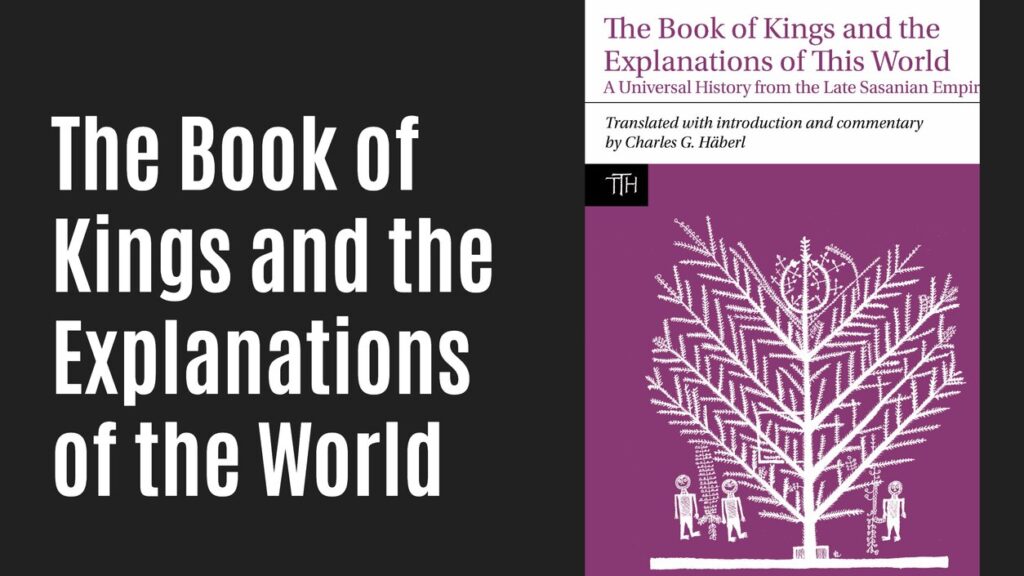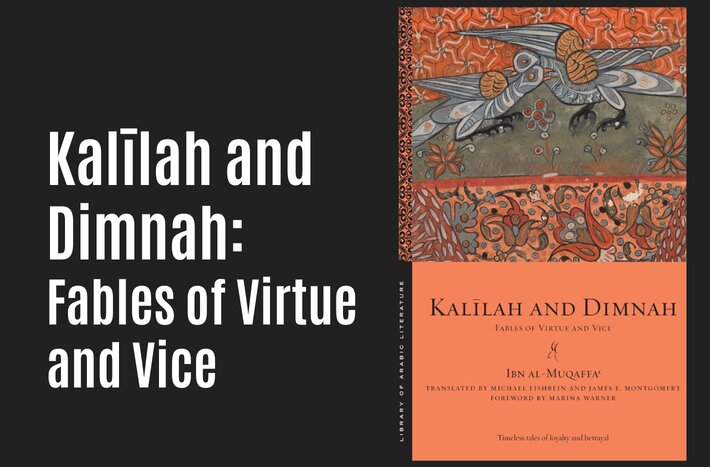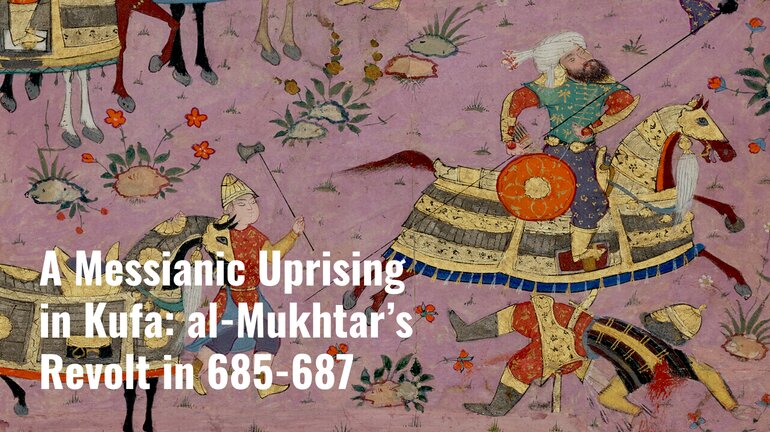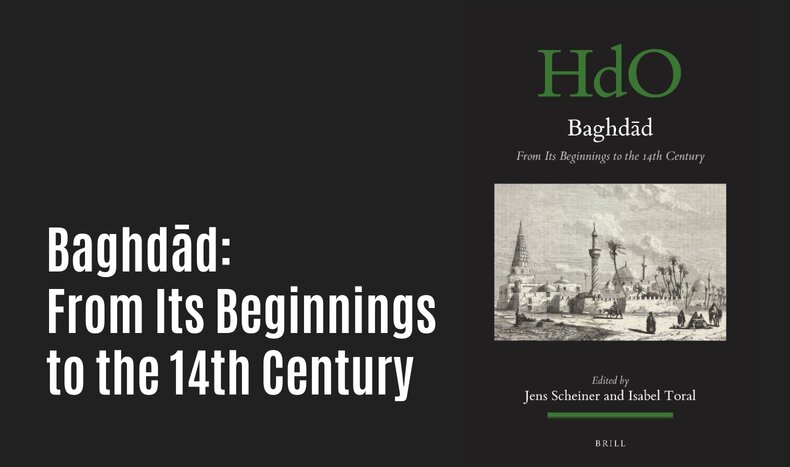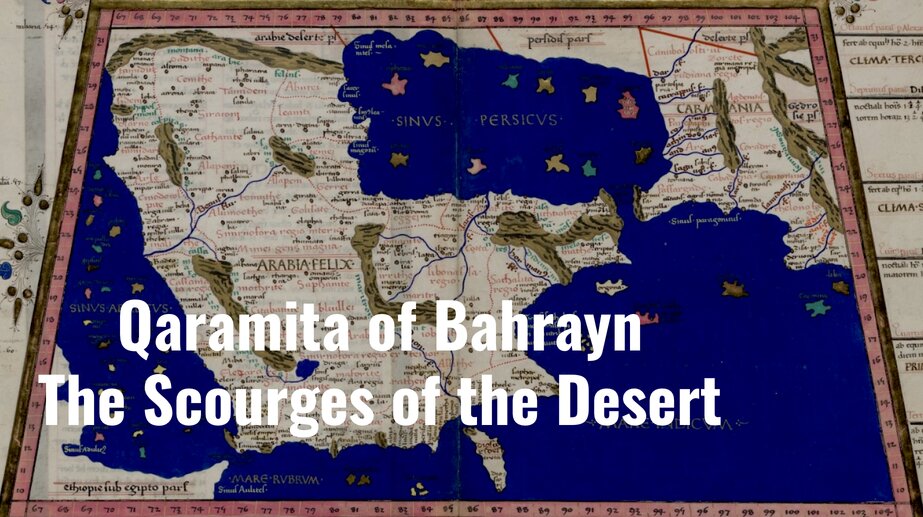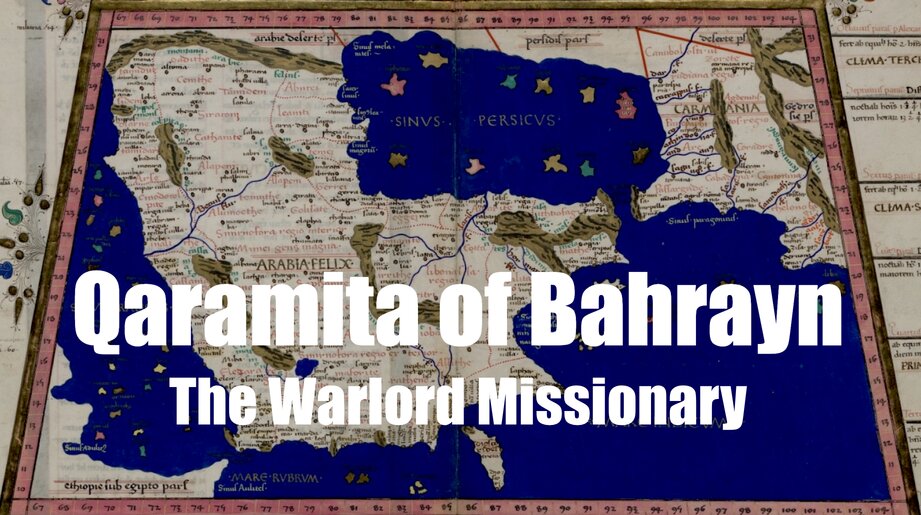New Medieval Books: History of the Arab Invasions: The Conquest of the Lands
Futuh al-Buldan is one of the most important primary sources for the early history of Islam. Written around the year 867, it chronicles the era of the Prophet Muhammad, and Muslim expansion into Syria, Egypt and Iraq.
New Medieval Books: The Science of Music
Did you know there was a vibrant music scene in 13th-century Baghdad, even during the time of the Mongol conquest? This book traces the life of a prominent musical scholar and explores what his works reveal about education and intellectual life in the medieval Islamic world.
The Copper Guardian: A Medieval Tale of Treasure Hunters and Curses
In a tale preserved from the 10th century, a man from Cairo sets out in search of treasure hidden deep in the mountains.…
Scribes, Not Just Authors: New Study Uncovers Editorial Brilliance in Medieval Syriac Manuscripts
A new study analyzes nearly 1,000 Syriac manuscripts using digital tools to reveal how scribes shaped literary culture through excerpting—introducing a new metric, Excerpts Per Manuscript (EPM), to map editorial practices across time and genre.
New Medieval Books: The Donkey King
Why does the humble donkey appear alongside prophets and demons? This book delves into the many roles donkeys play in Arabic literature—from comic relief to a symbol of the supernatural.
New Medieval Books: The Emergence of Arabic Poetry
Offering a fresh look at the origins and development of Arabic poetry, this book argues that pre-Islamic poetry reflected regional identities and that later Islamic scholars favoured a specific style to define a unified Arab culture.
New Medieval Books: The Medieval Persian Gulf
Although the Persian Gulf was not as prosperous or influential in the Middle Ages as it is today, the region boasts a fascinating history. This book delves into its communities, exploring their ethnic and religious dynamics alongside their trade activities.
New Medieval Books: The Rules of Logic
The most widely read introduction to logic in the Arabic-speaking world, this work dates to the 13th century. If you enjoy reading about propositions and syllogism, then this book is for you.
New Medieval Books: The Memoirs of Shah Tahmasp I
This is an account written by a 16th-century ruler where he describes many events and wars of his reign. It aims to both justify his decisions and offer advice to his descendants on how to rule.
Early medieval inscription discovered in Saudi Arabia
Archaeologists in Saudi Arabia have uncovered an inscribed stone dating back to the 5th century AD. The inscription consists of three lines, two of which are written in Thamudic script and one in early Arabic script.
Mongols and their impact upon the Muslim Middle East
This is a video version of episode 26 of the podcast “‘Tis But A Scratch: Fact and Fiction About the Middle Ages,” hosted by Professor Richard Abels.
New Medieval Books: The Mongol Storm
This book examines how the medieval Middle East was reshaped by the invasion of the Mongol Empire in the thirteenth century. In this story of war and politics, new groups would emerge while others, including the Crusaders, would lose it all.
Islamic Silver Unveiled: Geochemical Insights Rewrite History
A groundbreaking study has shed new light on the sources of early Islamic silver coins, known as dirhams.
Partying in the Middle Ages (and Party-Crashing)
Are you looking for fun and excitement? A medieval book gives you all the best secrets for how to get into parties, even…
New Medieval Books: The Book of Monasteries
While this tenth-century is text about monasteries it’s not about religion. Instead, it is very much an account of the social and literary world of Christian monasteries in the medieval Middle East and the poetry of this time.
Beyond the chessboard: Adventures in Abbasid literature and historiography
An exploration of the ways in which the Abbasid court made sense of the past and, in general, of what ‘historiography’ means in a medieval Arabic context.
Pre-Islamic Arabia, with Valentina Grasso
A conversation with Valentina Grasso on Arabia before Islam. This used to be known primarily from preserved Arabic poetry, but the picture is now filling in from inscriptions and contemporary texts. There were competing kingdoms, tribal coalitions, and foreign empires with a stake in trade routes. There were pagans, Jews, and Christians, as well as generic or “cautious” monotheists. The cultural background of the Quran has never been known in such richness and complexity.
New Medieval Books: The Book of Kings and the Explanations of the World
Likely created in the seventh century, this text is a cross between history and scripture written by the Mandaeans, a people living in present-day Iraq and Iran. It offers a look at the perspective of one community in the Middle East during the Early Middle Ages.
The Story of Moses at the Mongol Court
The extant paintings prominently feature the life of Moses in a synthesis of stylistic sources, reflecting a unique cosmopolitan union of history and religion.
New Medieval Books: Kalīlah and Dimnah: Fables of Virtue and Vice
Kalīlah and Dimnah: Fables of Virtue and Vice By Ibn al-Muqaffaʿ Translated by Michael Fishbein and James E. Montgomery New York University Press…
A Messianic Uprising in Kufa: al-Mukhtar’s Revolt in 685-687
Al-Mukhtar’s two-year rebellion was an episode of a greater historical event known as the Second Civil War or Second Fitna (680-692).
New Medieval Books: History of the Nation of Archers
This thirteenth-century Armenian history focuses on the Mongol invasion of the Middle East, covering the years 1214 to 1273.
New Medieval Books: Baghdād: From Its Beginnings to the 14th Century
This collection of 22 articles is a major guide and reference work to the medieval history of the city of Baghdad.
The Scourges of the Desert: The Triumph and Fall of the Qaramita of Bahrayn
In the second part of this look at the Qaramita, it is revealed how they challenged both the Abbasids and Fatimids before ultimately disappearing in the eleventh century.
The Warlord Missionary: Abu Sa‘id al-Jannabi and the Rise of the Qaramita of Bahrayn
Fierce desert tribesmen, united by a sectarian missionary, emerged in Eastern Arabia in the 9th century. Under the leadership of this warlord missionary, they established a powerful predatory polity in Bahrayn that would terrorize the neighboring regions for 150 years.


